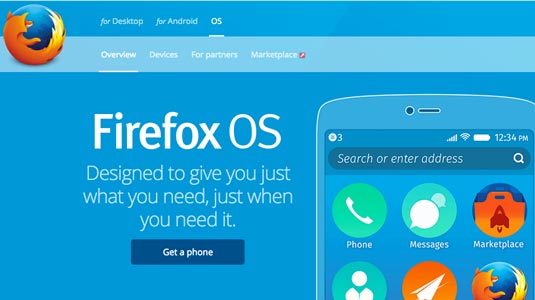How To Use Expo With Exisitng React Native App
Why designers should say no to native apps
Apps are consumed by us, the users, across many of our devices. They do a good job of directing us to focused content; a single source of the information we need on a single topic.
With the rise of smart devices, arguments that apps are a 'web killer' have increased. Developers have also flocked to native app development as they see the monetary rewards that creating a successful app can bring.
However, are native apps really the best platform for developer innovation or user experience? In this article, I will argue that the web remains the best platform for app development: not only for users but also for developers who want to push technical boundaries.
Closed system
The app ecosystem is often interpreted as a closed market, dominated by a few key stores, such as Apple's App Store and Google Play. This has meant that developers have had to build native apps for closed ecosystems. But the business model for closed systems – those designed for a specific hardware platform – is fundamentally flawed.
Rather than enabling the user to control their own experience, just as the web does, native apps are made to lock users in. They may lock us into a hardware model, meaning we don't have access to all of the functionality we want.
They may make us consistently update our software or upgrade to the newest smartphone to get the latest content. Rather than deliver an innovative experience, native apps limit it.

That is why the launch of the first Firefox OS device in 2013 marked a significant milestone for the mobile industry, since it enabled apps to be created to totally open web standards.
Standards-based technologies, including HTML5 and CSS3, make it possible for web apps to run on pretty much any platform via a modern, standards-compliant browser. Web apps are adaptive and responsive, affording developers with more time to innovate as less time is required to learn new coding skills or 'wrap' an app for delivery in a native environment.
Open platform
Ultimately, the web is an open platform for innovation, for all. Unlike closed technologies, an app ecosystem based on the web will never die, or cease to be relevant.
It's true that apps can be useful. Rather than typing a long address into a web browser, you're guided directly to the content you're searching for. Because of this, some called the rise of the app the 'dawn of the internet' – one icon, one click and a slick interface appears.
And apps can be cool. From Angry Birds to Candy Crush and Flappy Bird, we have entertainment at our fingers. We can collect badges, share our scores on Facebook, or link our photos to Instagram.

But what is it about the apps themselves that is useful or cool? Are they not just 'candy-coated web' – giving you information that is already available through your browser?
And what it is it about them that is innovative? Most people don't install popular apps because they are great software, but because of the number of other subscribers. Users themselves have been commoditised.
The innovation myth
Most apps are constantly updating, yet never really innovating. And frequently, we don't really understand the implications of these updates. For example, if you hit Update App, will the software suddenly give itself the right to access the photos or contacts on your phone and use them in any way the developer sees fit?
Often, we don't have any insight into what apps, and the companies behind them, want to do with our information. We cannot look under the hood, and we cannot stop these things from happening.
But why shouldn't users simply be able to restrict or grant app permissions whenever they wish? Could it be that we are currently in the midst of a Tamagotchi-style native app hysteria?

The similarities are uncanny – apps ask us to feed them, play with them, and when we can't be bothered any more, they end up in the corner of the room collecting dust. How many apps do you have on your phone, and how many do you actually use?
Because native apps are a self-serving business model, they are not conducive to innovation. In fact, they restrict it.
Next page: interoperability, web apps and an open future
Current page: Page 1
Next Page Page 2
Related articles
How To Use Expo With Exisitng React Native App
Source: https://www.creativebloq.com/web-design/why-designers-should-say-no-native-apps-51514978
Posted by: robinsonmuld1978.blogspot.com

0 Response to "How To Use Expo With Exisitng React Native App"
Post a Comment